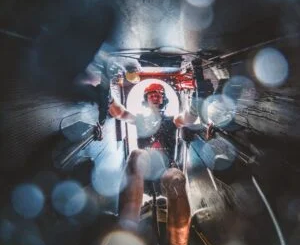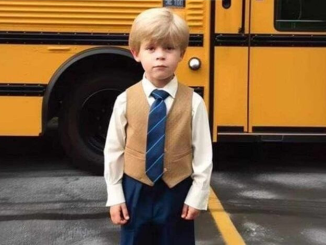
A lot of big, tragic and important things have happened to this wonderful country of ours since April 2014. None of which I have covered. I was too busy writing about hungover parenting, ancient philosophy and my dog Colin.
Out of the 536 columns I have written, 27 were about that guy. Far too few. He is such a good boy, he deserves an article a week.
Today is the end of an era for me, and whenever these final events pop up in our lives, we can’t help but think about the ultimate end.
Everything we do, we will one day do for the last time. That’s why you have to enjoy things while they are around. It’s not just big events like leaving a job, house or loved one either. Whatever moment you happen to be in now, you will never get it back, and you don’t know how many more you have.
Everything we do in life, from eating pizza to spending time with the people we love, to driving, writing, drinking or breathing, we will one day experience for the final time. It might happen tomorrow. This can be either a depressing or an inspiring thought, depending on how you look at it.
A few years back in this column, I interviewed professor of philosophy William B Irvine, of Wright State University, Ohio, on this very topic. He put it this way on a Zoom call: “Recognition of the impermanence of everything in life can invest the things we do with a significance and intensity that would otherwise be absent. The only way we can be truly alive is if we make it our business periodically to entertain thoughts of the end.”
Today’s column is very meaningful to me because it is my last. Like the last night with a lover before she goes overseas. And just like a lover, there have been some half-arsed efforts put in from me over the years. Last week, for example, I spent 750 words moaning about how bad my cricket team is. But the truth is that any of my columns could have been the final. If I had reminded myself every week for the past 10 years that the end is inevitable, I may have been more grateful for having a column and appreciated writing them all as much as I am this one.
While everything we do could have more meaning with a focus on finitude, some things are inherently more worthwhile than others. There is no doubt my column “The pros and cons of wearing Speedos” from November 2022 was less meaningful than most things in this world. That was a waste of everyone’s time. So, if we only have so much time, how do we pick the best things to do?
Well, Oliver Burkeman, the author of Four Thousand Weeks – Time Management For Mortals, suggested this to me in a 2022 column: “Ask yourself, does this choice enlarge me? You usually know on some unspoken level if it does. That’s a good way to distinguish between options.”
With that in mind, I don’t feel great about my 2018 article on “New Zealand’s best hole”. That didn’t enlarge anyone.
There will be people reading this column right now who have loved my writing in the Herald and are sad to see it end. Others will have hated it and are glad to see me go. Many won’t have any opinion at all. But for those in the first camp, I have good news. I have a book coming out on May 28 called A Life Less Punishing – 13 Ways To Love The Life You Got (Allen and Unwin Book Publishers). It’s a deep dive into the history, philosophy and science of not wasting our time lost in anger, loneliness, humiliation, stress, fear, boredom and all the other ways we find to not enjoy perfectly good lives. It’s available for pre-order right now (google it if you’re interested).
A Life Less Punishing took me two years to write and is equivalent in words to 100 of these columns. Which would be a complete nightmare for those in the hate camp, but as I say, great news for those who want more.
Anyway, thanks to the Herald for having me, thanks to the lovely people who make an effort to say nice things to me about my column nearly every day and thanks to the universe for every single second we get.
Bless!
Hollywood Legend Clint Eastwood’s Secret Life Finally Revealed
Clint Eastwood, a legendary movie star and director known for his strong and masculine image, has thrilled audiences for decades. But at 89, he shared a personal story he had kept secret for nearly sixty years. This secret links him to one of his most famous movies and gives insight into his fascinating life.
Early Life and Challenges
Born in 1930 during the Great Depression, Clint Eastwood grew up facing many hardships. His family moved often, and his father worked as a steelworker. Despite these struggles, Eastwood stood out for his tall height of 6 feet 4 inches and earned the nickname “Samson” from an early age.
A Scary Experience
Before he became famous, Clint Eastwood worked as a lifeguard in Seattle after finishing high school. But an incredible and little-known event happened when he was only 21. Eastwood was on a World War II Navy plane that crashed into the Pacific Ocean. Stranded in the water, he swam for miles toward the shore, unsure if he would make it. Looking back on that day, he later said, “I remember thinking, ‘Well, 21 is not as long as a person wants to live.’”

Inspiration from Real Life
This scary event had a lasting effect on Eastwood’s career. When he became a director, he drew from his own experience to create the 2016 film *Sully: Miracle on the Hudson*, which starred Tom Hanks. The movie tells the true story of the emergency landing of US Airways Flight 1549 on the Hudson River in 2009, where all 155 people survived.
The Story of Captain Sully
While the amazing landing impressed everyone, Eastwood was also deeply moved by what happened afterward and by Captain Chesley “Sully” Sullenberger’s character. Sully’s ability to stay calm, make quick decisions, and solve problems without panicking left a big impression on Eastwood. The contrast between Sully’s brave actions and the investigators’ later questioning of his decisions made it a powerful story for film.
A Living Legend
Clint Eastwood’s long and impressive career has made him a lasting icon in the film world. Even at 89, he keeps working and surprising audiences with his skill and passion, showing that true talent has no age limits.



Leave a Reply